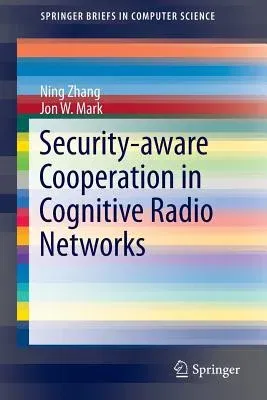Ning Zhang
(Author)Security-Aware Cooperation in Cognitive Radio Networks (2014)Paperback - 2014, 31 January 2014

Qty
1
Turbo
Ships in 2 - 3 days
In Stock
Free Delivery
Cash on Delivery
15 Days
Free Returns
Secure Checkout
Part of Series
Springerbriefs in Computer Science
Print Length
75 pages
Language
English
Publisher
Springer
Date Published
31 Jan 2014
ISBN-10
1493904124
ISBN-13
9781493904129
Description
Product Details
Authors:
Book Edition:
2014
Book Format:
Paperback
Country of Origin:
NL
Date Published:
31 January 2014
Dimensions:
23.39 x
15.6 x
0.46 cm
Genre:
Science/Technology Aspects
ISBN-10:
1493904124
ISBN-13:
9781493904129
Language:
English
Location:
New York, NY
Pages:
75
Publisher:
Weight:
136.08 gm

